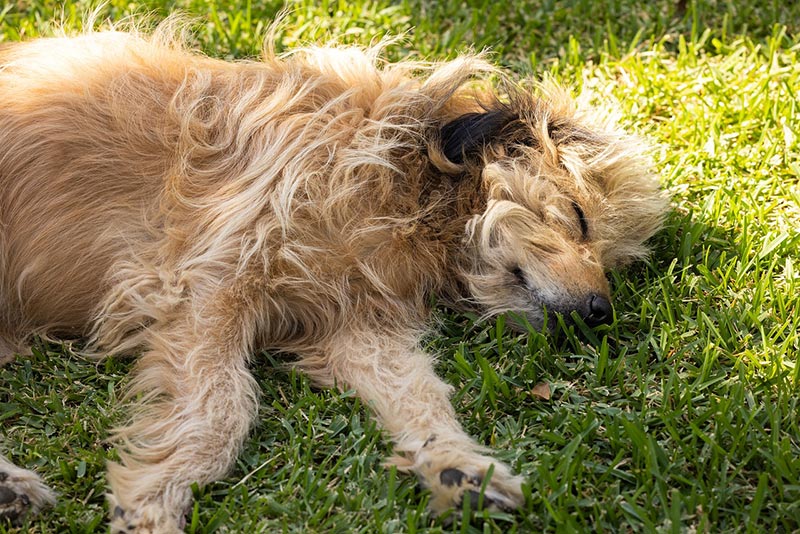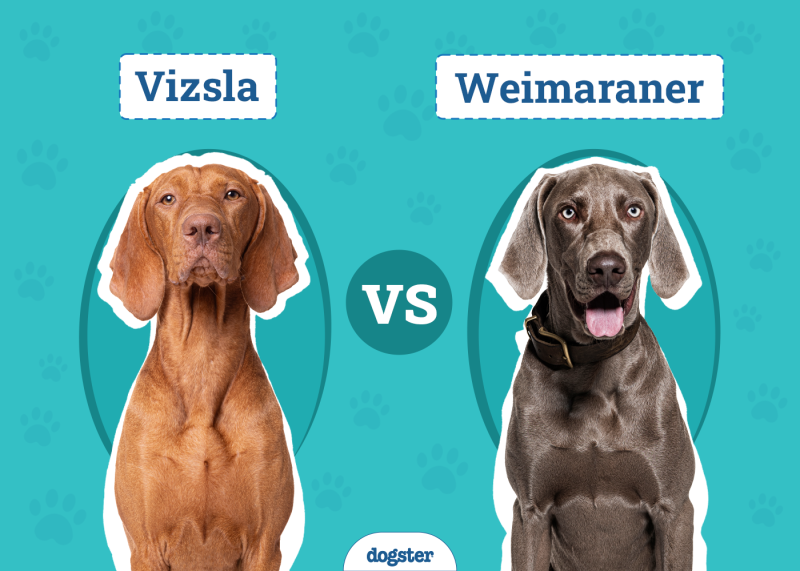Watching your dog have a seizure can be frightening, even if you work for a veterinarian and know what’s happening. Sometimes seizures happen only once, and sometimes they become a lifelong problem. Knowing what causes seizures can help us prevent them from happening.
If your dog is diagnosed with a seizure disorder, you should be aware that stress is considered a trigger for seizures. Dogs don’t technically get seizures from stress out of nowhere, but those with a known tendency to seize can have one in response to stressful circumstances.
In this article, we’ll look more closely at what causes seizure conditions in dogs, what research tells us about seizure triggers, and what to do if your dog has a seizure.

What Is a Seizure?
In simple terms, a seizure is a loss of control of your dog’s body caused by a malfunction in its brain.1 Seizures can occur either due to changes within the brain itself or to issues elsewhere in the dog’s body that also impact the brain. Dogs can experience either partial or generalized seizures.

What Causes Seizures?
As we mentioned, seizures can happen because of changes inside or outside of your dog’s brain. Common causes of seizures from outside your dog’s brain include:
- Low blood sugar
- High body temperature
- Liver disease
- Toxins, including chocolate
Problems inside your dog’s brain that can cause seizures may include:
- Tumors
- Infectious diseases like rabies
- Autoimmune disease
- Brain trauma
If your dog’s seizures don’t have a known cause, they are typically thought to result from idiopathic or genetic epilepsy. Many dog breeds are prone to carry genetic epilepsy, including Labs, German Shepherds, Pugs, Australian Shepherds, and others.
Seek veterinary advice if you’re concerned about your pet’s well-being.
If you need to speak with a vet but can't get to one, head over to PangoVet. It's our online service where you can talk to a vet online and get the advice you need for your dog — all at an affordable price!
What Triggers Seizures in Dogs?
The apparent unpredictability of seizures in dogs is one of their scariest parts. Your dog can be perfectly normal one minute and paddling on the floor the next. However, researchers have discovered some common triggers for seizures in dogs.
For example, seizures may occur anytime brain activity changes, such as when the dog is excited, falling asleep, or waking up. A study from 2015 found that going into heat was associated with increased seizures in female dogs with epilepsy,2 most likely due to hormonal changes.
Two studies found that stress and stressful events are among the most frequent seizure triggers in dogs with epilepsy.3 Research has found this is the case for humans with epilepsy as well, so the findings are consistent for dogs. Vet visits, boarding, and grooming appointments are all associated with triggering seizures in dogs.
Other stressful events that could cause your dog to have a seizure include changes at home or in the daily routine, visitors at home, and visiting new places. Besides stress, attacks might be triggered by the weather, sleep changes, or have no apparent cause at all.

What Do Seizures Look Like in Dogs?
Generalized or full seizures are the easiest to recognize because they are typically quite dramatic. Dogs experiencing generalized seizures often fall onto their side, jerk involuntarily, paddle their legs, foam at the mouth, and lose consciousness. The seizures may last seconds to several minutes.
Partial seizures are harder to catch because they can be subtle or look like your dog is acting weird. Dogs with partial seizures may experience twitching in one part of the body, head bobbing, biting at the air (fly biting,) or suddenly behave as if they’ve seen something threatening by snarling at nothing.
What to Do If Your Dog Has a Seizure
Regardless of whether your dog gets a seizure from stress or something else, here’s what you should do if one occurs. Before a full seizure occurs, dogs will go through what’s known as a “pre-ictal” or pre-seizure phase. During this time, dogs may seem anxious or nervous, as if they’re preparing for the worst. Witnessing this behavior can indicate that a seizure is coming, but this phase sometimes lasts only a few seconds.
If you witness your dog having a seizure, the most important things you can do are make sure they stay safe and don’t knock anything over onto themselves. You should also time how long the seizure lasts. In the stress of the moment, seizures often seem to last forever, so try to use a watch or clock to see how long it continues instead of estimating.
Don’t try to stick your hands in your dog’s mouth and grab their tongue. It’s a myth that they can choke on their tongue during a seizure, and you’ll likely be accidentally bitten.
Once your dog comes out of the seizure, they’ll typically experience a period of confusion and sometimes temporary blindness, often pacing aimlessly around the house, running into walls, and getting stuck in corners. This is called the “post-ictal” period and can be as stressful for you as the actual seizure!
Your dog can easily hurt themselves during this period, so keep them away from stairs, other pets, or anything heavy they can knock over. However, some dogs exhibit unpredictable and unusual behavior during this time, so interacting with them should be minimized.

When to Call the Vet
If your dog experiences their first seizure, call your vet to find out what to do once it’s over. Some dogs have only one attack, while others will continue to get more. Your vet may suggest tests to rule out some causes of seizures.
Your vet may prescribe anti-seizure medications for your pup, depending on how many seizures they’ve had. It’s vital to administer these drugs as directed and not skip doses or stop giving them unless instructed by your veterinarian.
Typically, owners of dogs with confirmed or suspected epilepsy will have a plan in place regarding when to call the vet if they experience seizures. For example, if an attack lasts longer than 5 minutes in any dog, emergency medical attention is needed to prevent brain damage and other complications. Talk to your vet about what to do if your dog with epilepsy gets a seizure.

Conclusion
While stress can trigger seizures in dogs with epilepsy, it can also occur without an obvious reason. Avoiding stressful situations benefits dogs with seizures, but it probably won’t prevent them all. You might be able to keep your dog away from stress, but having a pup with a seizure disorder is stressful, time-consuming, and often expensive.
Don’t be afraid to talk to your veterinarian about your questions, concerns, or fears about managing a dog with seizures.
Featured Image Credit: KaryB, Shutterstock






















